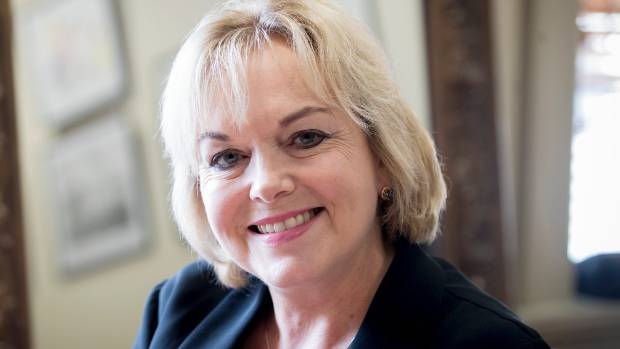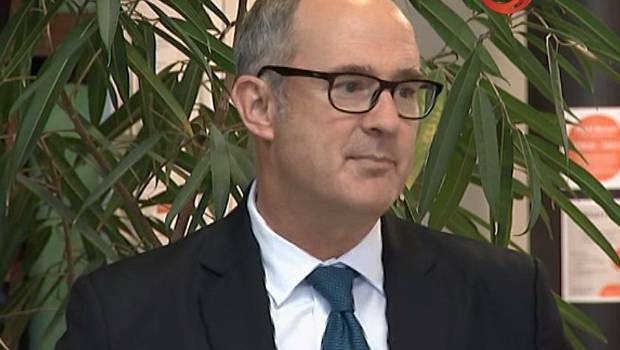Will banning letting fees raise rents?

The National Party didn’t have an immediate response to Labour’s move to ban letting fees being charged to tenants yesterday.
Former Housing Minister Nick Smith refused to comment on his way into the house, other than to say it wasn’t an issue he had seen as particularly important in his time.
New Housing spokeswoman Judith Collins was in Auckland on her way to the Obama dinner. But by Friday morning she had a decent sounding line, telling Housing Minister Phil Twyford on The AM Show that landlords would simply pass on the costs to tenants in the form of higher rents.
“If landlords have to pay the cost, they will have to get the money back from somewhere, or else they simply take the hit,” Collins said.
This seems logical. Landlords are forced to meet a cost that was previously met by tenants, to keep their margins stable they simply spread that cost out throughout the year. (Many tenants have argued that they actually wouldn’t mind this, as the upfront nature of the cost is more of a problem than the few bucks a week it would cost in extra rent if spread out.)

Judith Collins said rents would rise in response. MONIQUE FORD/STUFF
But Twyford says things aren’t that simple.
“In 2012 Scotland banned letting fees, there was no evidence that it led to any increase in rents,” Twyford said yesterday.
Rents did rise in Scotland slightly after the ban but most of the research supports that this wasn’t directly due to the letting fee ban, particularly as the rises were modest and were higher down south in England, where letting fees are allowed. Just two per cent of Scottish landlords surveyed cited the ban as a reason they had risen rents.
Letting fees were also banned in Germany, but new rent controls were brought in at the same time – and the average length of tenure there is 11 years, so we are hardly a comparable market.
The bill comes with a regulatory impact assessment from Treasury, who note rent rises as a “risk” – but also say there isn’t any clear evidence that supports it happening.
“Experience in other countries shows no clear evidence that banning letting fees will lead to increased rents,” the analysts write.
“In the event letting fees were passed on in the form of increased rent, at the current national average weekly rent of $452 for tenancies managed by property managers, $9.99 per week would be added to rents over a one year tenancy.
“While not necessarily desirable, tenants are likely to find the cost easier to pay when spread over the course of the tenancy rather than in a lump sum along with all the other costs associated with moving into a rental property.”
Twyford and his Treasury boffins aren’t alone.
Andrew King, head of the Property Investors Federation and hardly a friend of Labour, said rent rises could happen in some instances but would not hit across the board.
“Average tenancies are now 2 years and three months, so we could see the increase being at around $4 or $5 a week,” King said.
He is against the move, arguing it takes away the option for tenants to pay a bit more to secure a property in a constrained market.
“It is possible that those tenants previously willing to pay a letting fee may turn to offering a higher rental in order to put themselves ahead of other tenants. So we could see an increase in rental auctions initiated by these tenants,” King said.
Economist Eric Crampton of the right-leaning New Zealand Initiative said that in constrained markets where rents were already high like Wellington he didn’t expect rents to rise in response.
Landlords in these areas were already charging towards the higher end of what could be borne by the market.
“If you are in places where supply is very constrained then the burden will fall on landlords,” Crampton said.
“You could expect maybe to see a small small effect of the price of rental properties with frequent turnover.”
Given the amount was so low when spread over the year this would essentially be statistical noise.
Crampton said the thing to worry about would be a real exit of landlords from the system if more and more rules were heaped upon them.
This could hurt labour mobility – people moving around for jobs – because thick rental markets allowed for people to move more easily.
Twyford has argued out that a landlord moving out of the market is hardly going to leave the house empty – it will either sell to an owner occupier or re-enter the rental market. (The problem with this is that more people typically live in a rental than live in an owner-occupied house.)
But that’s a wider debate that will play out as Twyford moves to transform the rental market over the next year or so. For now, the experts appear to agree that any rent spike in response to this move will not be a very big deal.




